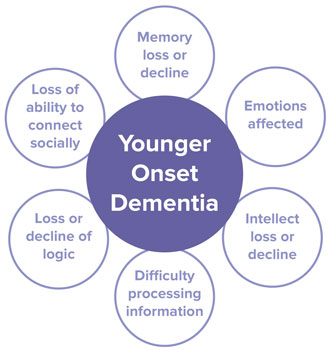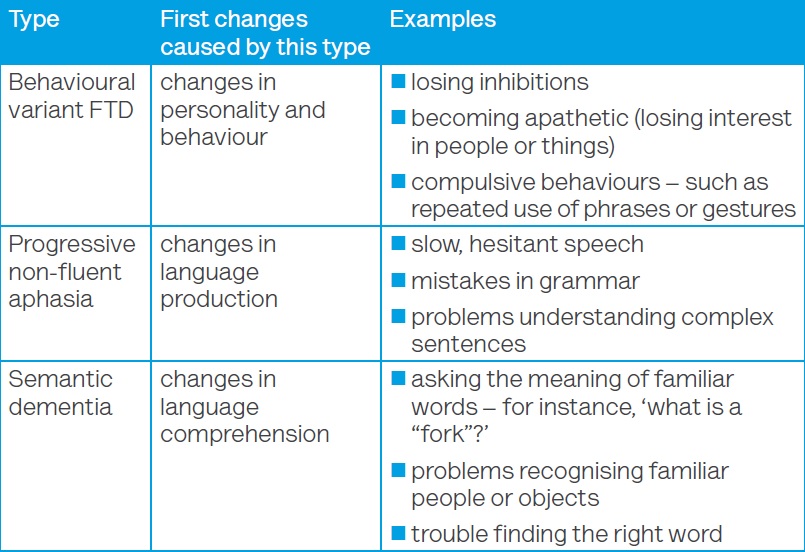The Relevance of Very Early Detection and Medical Diagnosis in Mental Deterioration Instances
When it involves mental deterioration, identifying the indicators early can make a considerable distinction. You could question how prompt interventions can change the course of the condition. Early detection not just opens therapy alternatives however likewise enhances the top quality of life for people and their family members. Understanding the nuances of dementia can aid you determine signs quicker. Yet what should you know concerning the steps to take as soon as a diagnosis is made?
Comprehending Dementia: Signs and types

Usual signs and symptoms consist of amnesia, problem with communication, and modifications in state of mind or habits. You might observe a person having a hard time with acquainted tasks or becoming perplexed concerning time and area. If you see these check in yourself or an enjoyed one, don't think twice to look for help. Early recognition of dementia signs can substantially enhance the general management of the problem, making it crucial to stay informed. When required., recognizing these distinctions equips you to act quickly and properly.
The Impact of Very Early Diagnosis on Therapy Choices
Recognizing the indicators of dementia early can significantly influence the therapy choices offered. You open the door to a range of treatments that can slow down the disease's development when you seek a medical diagnosis immediately. Drugs made to manage symptoms are most reliable in the earlier stages. You'll also have far better accessibility to professional tests, which may use cutting-edge treatments that aren't available later in the condition.
Additionally, early diagnosis allows you to check out non-pharmaceutical methods, such as cognitive treatments and way of living modifications, that can enhance cognitive function. You'll have the chance to create a customized care strategy that addresses your specific needs and preferences. This proactive method not only equips you however also helps in taking care of possible existing side-by-side conditions. Remember, the sooner you act, the a lot more choices you'll need to maintain your lifestyle and independence for as long as feasible.
Just How Early Discovery Can Improve High Quality of Life
Early detection of mental deterioration not just opens up therapy choices however additionally substantially improves your top quality of life. When you determine signs and symptoms early, you can begin to handle them properly, enabling you to keep a sense of self-reliance and control over your everyday activities. Early diagnosis means you can access treatments and way of living changes customized to your needs, assisting you deal with obstacles in a much more structured means.
Furthermore, recognizing your condition empowers you to make informed decisions about your future. You can plan for the adjustments ahead, guaranteeing that your personal goals and preferences are focused on. This proactive method promotes a feeling of security, decreasing stress and anxiety for both you and your loved ones.
Moreover, participating in early treatments may boost your cognitive function and emotional health, enabling you to appreciate significant connections and experiences. Basically, early discovery isn't practically taking care of symptoms; it has to do with enhancing your life.
The Duty of Family Members and Caregivers in Early Recognition

By sharing your issues, you assist start early assessments, which can lead to prompt diagnosis and intervention. In addition, your support can urge loved ones to look for assistance, decreasing stigma and anxiety associated with mental deterioration.
In addition, preserving open lines of interaction within the family members fosters a helpful environment. Fall Risk. Your proactive involvement not only help in identifying the problem however additionally aids in preparing for future treatment, guaranteeing that your liked one best site obtains the very best feasible assistance as their demands advance
Usual Misconceptions Regarding Dementia
Family caregivers and members usually face challenges not just in recognizing signs of dementia yet additionally in traversing the misunderstandings surrounding the condition. One common misunderstanding is that mental deterioration just impacts the elderly. While age is a considerable risk aspect, more youthful people can likewise establish dementia. One more myth is that dementia is a normal part of aging. It is essential to recognize that while amnesia can take place with age, it's not an inevitable end result. Some individuals believe mental deterioration only impacts memory, yet it can likewise affect behavior, state of mind, and reasoning. In addition, many think that when detected, absolutely nothing can be done. Actually, early treatment can result in much better management of symptoms. Ultimately, some believe that all kinds of mental deterioration are the exact same. Each kind, such as Alzheimer's or vascular dementia, has one-of-a-kind characteristics and calls for various approaches to care. Comprehending these misunderstandings is necessary for reliable assistance.
Tools and Evaluations for Very Early Discovery
When it concerns early discovery of mental deterioration, understanding cognitive evaluations and testing tools is crucial. These tools can help you determine possible concerns before they escalate. By acquainting yourself with these analyses, you can play an active duty in checking cognitive health.
Cognitive Analyses Summary
Cognitive evaluations play a vital function in the early discovery of dementia, as they aid recognize refined modifications in memory, thinking, and thinking abilities. Early identification through these devices can lead to prompt treatments, boosting outcomes and quality of life. If you discover any kind of cognitive adjustments, seeking out these evaluations can be a proactive action toward understanding and handling your brain wellness efficiently.
Evaluating Tools Use
Utilizing efficient testing tools is important for the very early detection of dementia, as they supply a structured method to evaluating cognitive health and wellness. You can recognize potential problems prior to they escalate when you utilize these devices. Usual assessments, like the Mini-Mental State Evaluation (MMSE) or the Montreal Cognitive Analysis (MoCA), aid determine memory deficits and other cognitive disabilities. Routine screenings enable you to track modifications with time, making it much easier to review interest in medical care suppliers. By including these tools into regular evaluations, you equip yourself and your liked ones to seek timely treatments. Keep in mind, very early discovery can substantially influence therapy options and lifestyle, so don't undervalue the power of aggressive testing.
Actions to Take After a Medical Diagnosis: Preparation for the Future
After getting a mental deterioration diagnosis, it's important to begin preparing for the future. You'll desire to establish care plans that match your requirements while also addressing economic and legal prep work. Taking these actions early can help assure look what i found you and your loved ones really feel a lot more secure progressing.
Establishing Care Strategies

Economic and lawful Prep work
As you navigate your treatment plan, it is necessary to ponder the financial and legal facets of dealing with dementia. Beginning by marking a power of lawyer to manage your economic choices if you're unable to do so. This ensures your dreams are appreciated and can relieve the burden on your liked ones. Next off, consider creating a living will certainly to outline your healthcare choices. Evaluation your insurance coverage and understand what's covered, particularly long-lasting care options. It's also wise to talk to a financial organizer knowledgeable about dementia-related concerns. They can help you handle your possessions and prepare for future costs. Taking these aggressive actions can give comfort and ensure your demands are met as your problem progresses.
Frequently Asked Concerns
What Are the Risk Elements for Developing Dementia?
You might face higher threats for establishing mental deterioration if you have a household background, check out this site cardio problems, diabetes, smoking cigarettes routines, or low education and learning levels. Remaining active emotionally and physically can aid decrease these risks substantially.
Can Lifestyle Adjustments Stop or Postpone Mental deterioration?
Yes, making lifestyle modifications can aid postpone or prevent mental deterioration. By remaining energetic, consuming a balanced diet regimen, taking part in social activities, and testing your brain, you're boosting your cognitive wellness and minimizing danger elements.
Exactly How Does Dementia Differ From Normal Aging?
Dementia includes cognitive decline that disrupts everyday life, while normal aging normally does not (Fall Risk). You could see memory lapses as you age, but dementia signs and symptoms, like confusion and problem with communication, are extra serious and turbulent
Exist Any Type Of Support System for Dementia Caregivers?
Yes, there are support system for mental deterioration caretakers. You can discover local or on-line teams through organizations like the Alzheimer's Association. Attaching with others in similar situations can give valuable emotional assistance and practical guidance.
What Legal Papers Should I Prepare After a Mental Deterioration Diagnosis?
After a dementia diagnosis, you need to prepare crucial lawful files like a power of attorney, health care proxy, and living will. These help guarantee your dreams are valued and give advice for future clinical and economic choices.
The Relevance of Very Early Discovery and Diagnosis in Dementia Instances
Alzheimer's condition is the most common kind, but you'll additionally come across vascular dementia, Lewy body mental deterioration, and frontotemporal mental deterioration.When it comes to early discovery of mental deterioration, understanding cognitive evaluations and screening devices is crucial.Cognitive assessments play an essential function in the early discovery of mental deterioration, as they help recognize refined changes in memory, assuming, and thinking abilities.Making use of efficient screening tools is essential for the early detection of dementia, as they supply a structured strategy to assessing cognitive health.